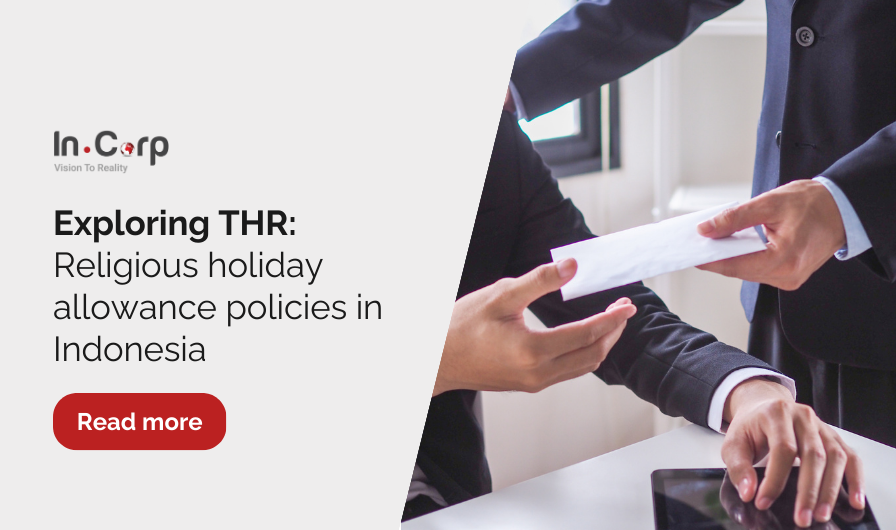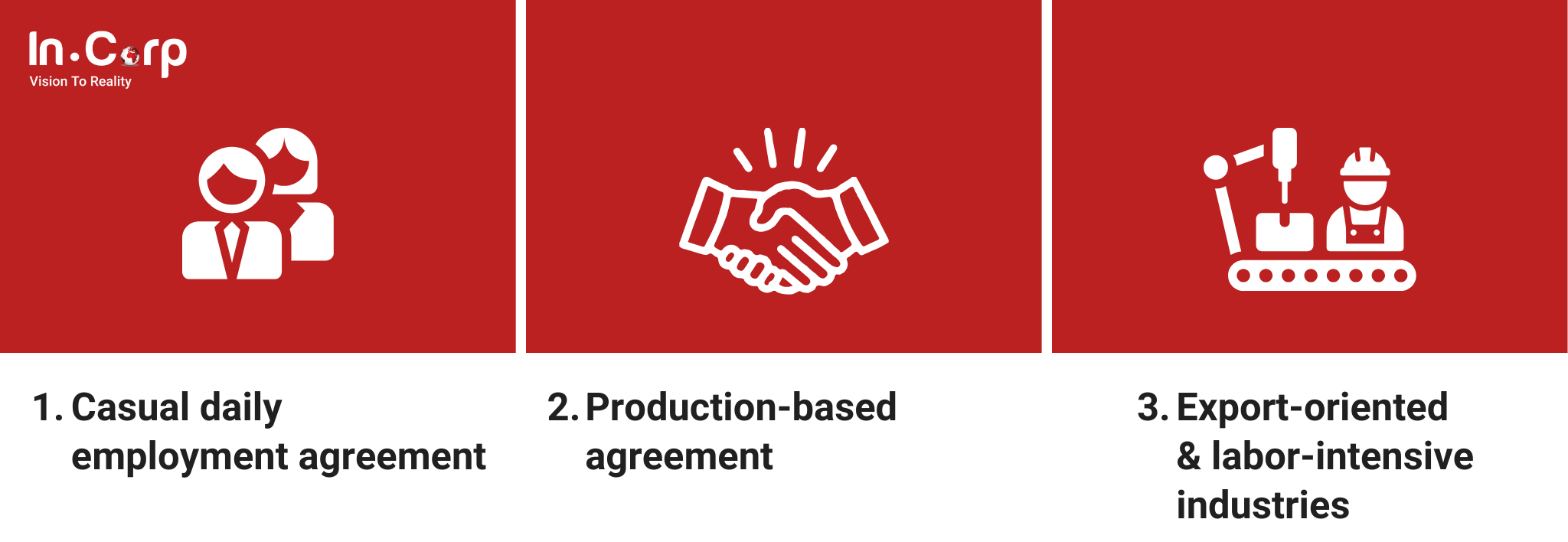Everyone in Indonesia must celebrate major religious holidays such as Idul Fitir and Christmas Day. Many significant religious holidays are designated as national holidays, and companies also provide religious holiday allowances, known as Tunjangan Hari Raya (THR), to their employees.
The THR, or the religious holiday allowance, is a mandatory employer-provided benefit for various religious holidays. This policy helps to ensure everyone can participate in the festivities. Let’s delve deeper and explore its significance for both employees and the Indonesian economy.
What is a religious holiday allowance in Indonesia?
When talking about THR, Indonesia’s Ministry of Manpower has issued Circular Number M/2/HK.04/III/2024. The regulation mandates that this year’s religious holiday allowance be paid in full, not in installments.
The religious holiday allowance (THR) is an annual bonus provided to employees at least one week before the religious holiday they observe, according to their respective faiths. The recognized religious holidays for THR payments include:
- Eid-il-Fitr for Muslims;
- Christmas for Catholics and Protestants (considered two separate religions in Indonesia);
- Nyepi for Hindus;
- Vesak for Buddhists and
- Chinese New Year for Confucianists.
Given that the majority of Indonesian workers follow the Islamic faith, it is customary for many businesses in the country to pay the THR to Muslim employees before the Eid-il-Fitr holiday and to non-Muslim employees before the Christmas holidays.
Read more: Developing a successful recruitment strategy in Indonesia
Who is eligible to receive THR, and how can it be calculated?
Based on an Employment Agreement, the religious holiday allowance is provided to employees who have worked continuously for at least one month. The amount of THR is determined as follows:
- Employees who have worked for 12 months or more are entitled to a THR equal to one month’s wage.
- Those who have worked for between one month and less than 12 months receive a proportional THR based on their working period.
Casual daily employment agreement
Employees on casual daily employment agreements receive a THR equal to one month’s wage. The religious holiday allowance is calculated as the average salary received over the last 12 months if they have worked for 12 months or more or the average monthly salary during their working period if they have worked for less than 12 months.
Production-based agreement
Moreover, employees whose wages are based on production units are entitled to a THR equal to one month’s wage, calculated as the average wage received in the last 12 months before the religious holiday.
If a company’s employment agreements, regulations, collective labor agreements, or practices stipulate a higher THR amount, the company must pay the higher amount.
Export-oriented & labor-intensive industries
For specific export-oriented, labor-intensive industries affected by global economic changes, such as textiles, footwear, leather goods, furniture, and children’s toys, the religious holiday allowance is calculated based on the last wages before any wage adjustments, as per the Minister of Manpower Regulation Number 5 of 2023 concerning Adjustment of Working Time and Wages for such companies.
When should THR be distributed?
THR is a payment directly linked to religious observances. It is disbursed one week before the respective celebrations. The timing is based on the employee’s religion and the upcoming holiday.
Employers must ensure timely disbursement of the THR payment. Below are the deadlines for the religious holiday allowance payment per respective religious holidays in 2024:
| Payment deadline | Religious holiday |
|---|---|
| 03 April | Idul Fitri for Muslims |
| 18 December | Christmas for Christian Protestants and Catholics |
| 28 February | Silence Day, also known as Seclusion (Nyepi) for Hindus |
| 10 May | Vesak (Waisak) for Buddhists |
What are the sanctions for businesses that fail to pay THR?
Employees can report their employer to the Ministry of Manpower if they delay or fail to pay the THR bonus. Only businesses with explicit permission from the Ministry of Manpower can defer this payment. Employers who do not comply may face fines and other administrative sanctions, including:
- A fine of five percent of the total THR owed to the employee;
- Written warnings;
- Restrictions on business activities, such as delays in receiving business permits or limitations on production capacity;
- Temporary suspension of all production and
- Suspension of business activities for a certain period.
These sanctions are applied in stages and do not exempt the employer from the obligation to pay the THR. Additionally, employees who still owe their THR from previous years must be paid in full.
If, after these sanctions, the employer still fails to pay the religious holiday allowance, the employee has the right to take the employer to the Industrial Relations Court.
Outsource your payroll process with InCorp Indonesia
Understanding Indonesia’s human resources law and tax policies can be daunting for novice and experienced investors. Even with ample time for learning, unfamiliarity with Indonesian payroll calculations and tax reporting can pose significant risks to your business.
InCorp Indonesia can help you save time and money by managing payroll outsourcing in Indonesia, alleviating the burden of keeping up with ever-changing regulations.
- Cost savings: Outsourcing payroll is typically more cost-effective than managing an in-house payroll department.
- Compliance: Outsourcing ensures payroll processes comply with Indonesian regulations and legislation.
- Time efficiency: Professional payroll outsourcing can significantly enhance your business’s payroll process efficiency.
- Accuracy: Outsourcing improves the accuracy of payroll, minimizing mistakes in calculations and regulatory compliance.
- Security: Through advanced technology, outsourcing reduces the risk of identity theft, embezzlement, or misuse of company information.
Our expertise ensures your company complies with the latest regulations, maintains payroll accuracy, and provides an efficient payroll service. Click the button below to consult on your payroll process.
Get in touch with us.
What you'll get
A prompt response to your inquiry
Knowledge for doing business from local experts
Ongoing support for your business
Disclaimer
The information is provided by PT. Cekindo Business International (“InCorp Indonesia/ we”) for general purpose only and we make no representations or warranties of any kind.
We do not act as an authorized government or non-government provider for official documents and services, which is issued by the Government of the Republic of Indonesia or its appointed officials. We do not promote any official government document or services of the Government of the Republic of Indonesia, including but not limited to, business identifiers, health and welfare assistance programs and benefits, unclaimed tax rebate, electronic travel visa and authorization, passports in this website.



